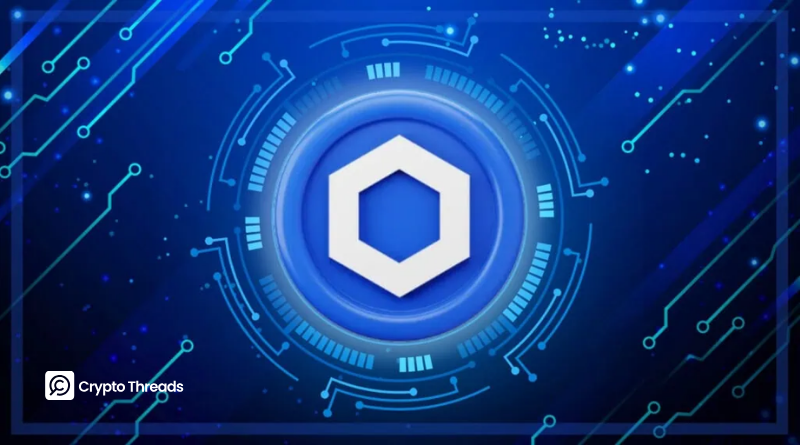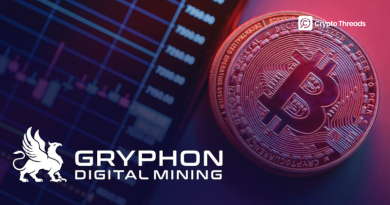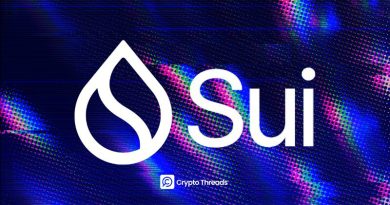Chainlink’s AI-Powered Tool Aims to Revolutionize Global Financial Data Sharing
Chainlink is making major strides in transforming how the global financial system handles data, leveraging artificial intelligence and blockchain to improve accuracy, transparency, and efficiency. Its new AI-driven communication tool could reshape how corporate actions and financial data are processed worldwide.
- The project used AI models (OpenAI’s GPT, Google’s Gemini, Anthropic’s Claude) to create a shared onchain “golden record.”
- The system follows ISO 20022 standards, enabling secure and interoperable data exchange.
- The pilot included major banks like UBS, DBS, BNP Paribas, and others.
- Chainlink’s solution could save billions by reducing settlement errors and manual data validation.
- Asset tokenization emerged as a key use case, showing how traditional assets can move onchain.
Chainlink, the decentralized oracle network, is deepening its integration into the global financial system through partnerships with some of the largest market infrastructure providers — including DTCC, Swift, and Euroclear. The company’s latest pilot program showcases how combining blockchain, AI, and standardized messaging could eliminate inefficiencies in financial data processing and corporate action management.
In this second phase of its industry initiative, Chainlink worked alongside major financial players such as UBS, DBS Bank, BNP Paribas Securities Services, and Citi, among others. The program’s goal was to streamline how institutions manage data related to corporate actions — events like mergers, dividends, or stock splits — which currently involve high operational costs and manual revalidation.
Chainlink’s Runtime Environment used large language models (LLMs) — including GPT, Gemini, and Claude — to process and structure data into “unified golden records” stored onchain. This creates a single, verified source of truth for all participants, ensuring that every data point can be traced, verified, and shared across systems with cryptographic integrity.
The processed data was then transmitted via the Swift Network using ISO 20022-compliant messages, ensuring compatibility with global financial communication standards. The result is a blockchain-powered framework capable of reducing settlement errors, accelerating reconciliation, and cutting tens of billions in annual processing costs for financial institutions.
According to Citi research, an average corporate action can involve over 110,000 firm interactions and cost up to $34 million to process — with 75% of firms still relying on manual revalidation. By contrast, Chainlink’s system automates much of this work while recording all actions transparently across public and private blockchains, including DTCC’s own ecosystem.
The experiment also involved a range of major financial players, including ANZ, Wellington Management, Schroders, Zürcher Kantonalbank, Vontobel, CTBC Bank, Sygnum, and AMINA Bank. Beyond corporate actions, the test produced promising early results in asset tokenization, where traditional assets such as equities, bonds, or real estate titles are represented onchain — one of the fastest-growing trends in finance.
Final Thought
Chainlink’s collaboration with global financial giants marks a major step toward digitizing traditional markets. By combining blockchain, AI, and standardized communication, the company is helping modernize one of finance’s most outdated systems. If successful at scale, this innovation could bring the financial industry closer to a fully automated, transparent, and interoperable global network.



